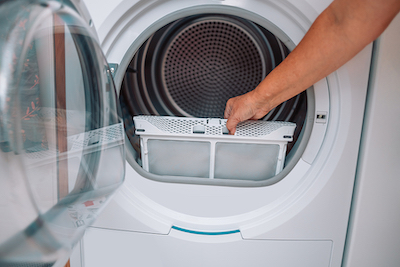A clothes dryer is a must-have appliance for many households, providing a convenient and efficient way to dry laundry quickly. However, when it comes to choosing a dryer, the debate between electric and gas models can leave consumers scratching their heads. Understanding the differences between the two types, along with the pros and cons of each, will help you make the best decision for your home and budget. In this article, we’ll delve into the world of electric and gas clothes dryers, comparing their energy efficiency, cost, installation, and maintenance requirements.
Section 1: Energy Efficiency
One of the primary factors to consider when choosing between an electric and gas clothes dryer is energy efficiency. This not only affects your utility bills but also your carbon footprint.
1.1 Electric Dryers
Electric dryers use heating coils to generate heat, which then evaporates the moisture in your clothes. While these dryers can be somewhat energy-efficient, they generally consume more electricity than gas dryers. The efficiency of electric dryers can vary based on the model, with Energy Star certified dryers offering the best efficiency ratings.
1.2 Gas Dryers
Gas dryers utilize natural gas or propane as fuel to create heat. They are generally more energy-efficient than their electric counterparts, as they can dry clothes faster and use less energy overall. This can result in lower utility bills and reduced environmental impact. However, energy efficiency can also vary between gas dryer models, so it’s essential to research and compare options before making a decision.
Section 2: Cost
The initial cost of a dryer and its long-term operating costs are also essential factors to consider when deciding between electric and gas models.
2.1 Electric Dryers
Electric dryers are typically more affordable upfront, with prices ranging from $400 to $1,000 or more, depending on the brand, features, and capacity. The cost of operating an electric dryer is primarily determined by your local electricity rates. On average, electric dryers can cost around $0.30 to $0.40 per load, but this figure may vary based on your energy provider.
2.2 Gas Dryers
Gas dryers are generally more expensive upfront than electric models, with prices ranging from $500 to $1,500 or more. However, they tend to have lower operating costs due to their increased energy efficiency. Natural gas and propane prices vary by region, but on average, gas dryers cost around $0.15 to $0.25 per load to operate.
Section 3: Installation
Installation requirements differ between electric and gas dryers, and this may impact your decision when choosing between the two.
3.1 Electric Dryers
Electric dryers are relatively simple to install and can typically be plugged into a standard 240-volt outlet. However, some older homes may not have this type of outlet, requiring an electrician to install one. This can add to the initial cost of an electric dryer, but it is a one-time expense.
3.2 Gas Dryers
Gas dryers require a gas line and a 120-volt electrical outlet for installation. If your home does not have an existing gas line, the cost and complexity of installing one can be significant. Additionally, gas dryers must be vented to the outdoors, which may require professional assistance if you don’t already have a suitable vent in place.
Section 4: Maintenance
Regular maintenance is crucial for the optimal performance and longevity of your clothes dryer, regardless of the type you choose.
4.1 Electric Dryers
Electric dryers generally have fewer components than gas models, making them simpler to maintain. Basic maintenance tasks include cleaning the lint filter after each load, inspecting the vent for blockages or damage, and occasionally checking the heating element for wear. These tasks can usually be performed by the homeowner without the need for professional assistance.
4.2 Gas Dryers
Gas dryers require similar maintenance tasks as electric models, such as cleaning the lint filter and inspecting the vent. However, they also have additional components like gas valves and burners that need occasional inspection and maintenance. It’s recommended to have a professional service your gas dryer annually to ensure it is operating safely and efficiently. This can add to the long-term costs of owning a gas dryer, but it’s essential for the appliance’s performance and safety.
Section 5: Environmental Considerations
When choosing between an electric and gas clothes dryer, it’s important to consider the environmental impact of each type.
5.1 Electric Dryers
The environmental impact of electric dryers is largely determined by the source of electricity used to power them. If your electricity is generated from renewable sources like solar or wind, an electric dryer can be a more eco-friendly choice. However, if your electricity comes primarily from fossil fuels, such as coal or natural gas, the environmental impact of an electric dryer may be higher.
5.2 Gas Dryers
Gas dryers use natural gas or propane as fuel, which are fossil fuels that contribute to greenhouse gas emissions. Although gas dryers are generally more energy-efficient than electric models, they still have an environmental impact due to their reliance on non-renewable energy sources. If reducing your carbon footprint is a priority, you may want to consider other factors, such as the efficiency of the specific dryer model, when making your decision.
When it comes to choosing between an electric and gas clothes dryer, there are several factors to consider, including energy efficiency, cost, installation, maintenance, and environmental impact. Electric dryers tend to have lower upfront costs and simpler installation requirements but may have higher long-term operating costs and a greater environmental impact, depending on your electricity source. Gas dryers, on the other hand, offer improved energy efficiency and lower operating costs but come with higher upfront costs and more complex installation and maintenance requirements.
Ultimately, the best choice for your home will depend on your specific needs, priorities, and resources. By carefully weighing the pros and cons of each type of clothes dryer, you’ll be better equipped to make an informed decision that meets your household’s requirements and contributes to a more sustainable future.










